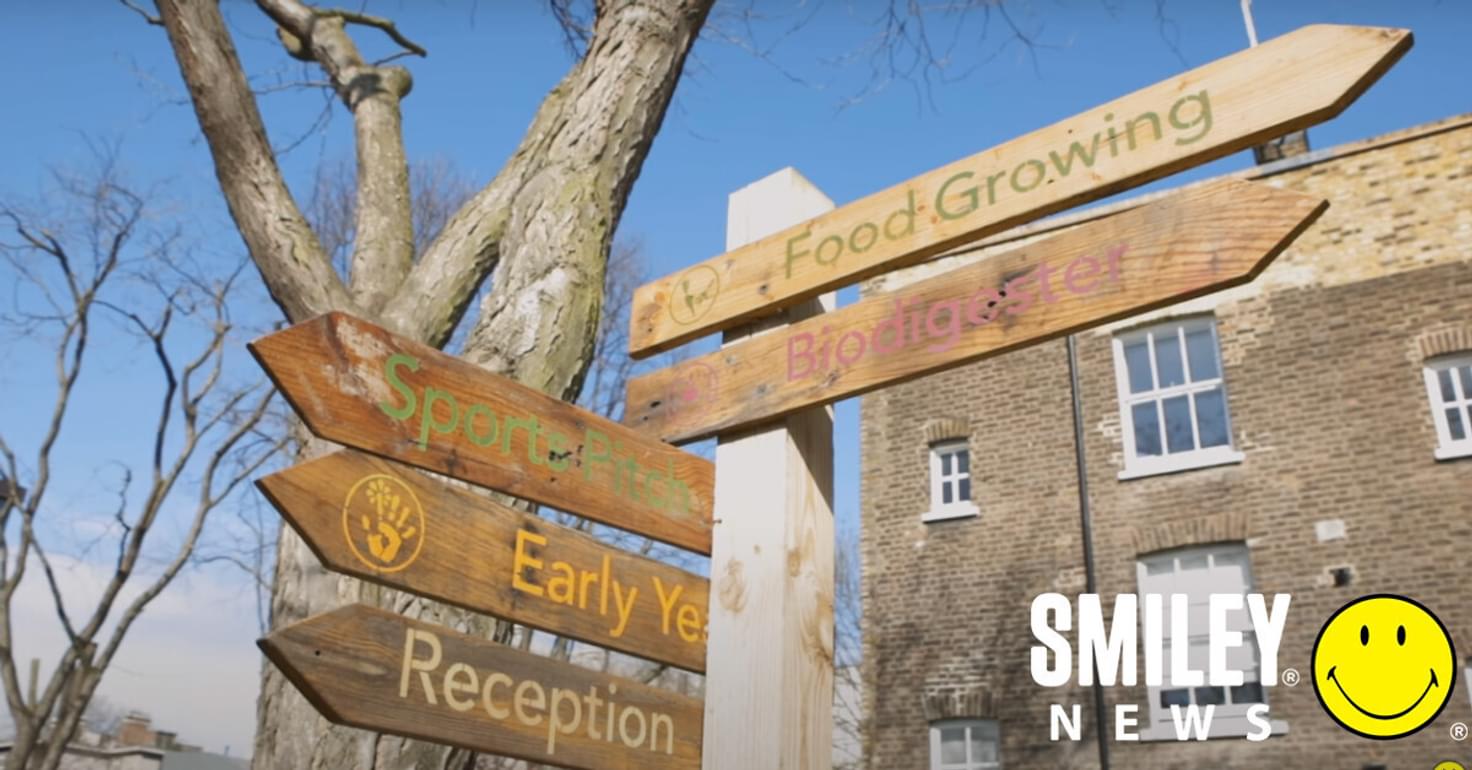
Words by Smiley Team
Among the grey tower blocks of Kings Cross, Calthorpe Community Garden is a green anomaly offering locals a source of peace, therapy and free food. Its brick walls shelter vegetable patches of cabbages and carrots as well as more exotic produce such as kiwi fruits.
Since Covid-19 struck at the start of 2020, the garden’s volunteers responded by partnering with food distribution service The Felix Project. Every week they deliver healthy meals and groceries to self-isolating older people and disadvantaged families living in 48 households nearby.
Volunteers enjoy the opportunity to socialise and spend time in nature. “We say the garden offers social and therapeutic horticulture,” explained its director Louise Gates, “because we do a bit of gardening but mostly our work is about getting to know people, meeting local residents, making friends, and eating well.”
Among those who benefit from the garden is Rudi Champagnie, a military veteran with PTSD. “I just love to garden and get my hands dirty,” he said. “It gives me an opportunity to meet people and develop my social skills which were a bit diminished, isolated in a flat by myself, because of my PTSD. This garden is a good place. I call it my safe place.”
The garden also serves as a space for recreational activities. From a sports court running alongside the garden you hear the regular cries of people enjoying a football match, while at the entrance, an office and kitchen provide space for meal preparation and administration.
Established in 1983, it emerged from a battle between residents and developers who wanted to build an office block, which they feared would disrupt the local community. After filing petitions, lobbying councilors and sending a delegation to Camden Council, they won rights to the land and transformed it into a green oasis and social space.
The project is largely self-sufficient, with flowers and vegetables fertilized by the garden’s own composting system, and run entirely by local volunteers.
Louise believes that it is a highly replicable initiative that can help communities elsewhere by bringing people together and offering a source of food for disadvantaged people.
“Coronavirus really did shine a light on how vital these kinds of organisations are. We were able to respond immediately to needs in our neighbourhood because we already knew the most vulnerable people,” she explained.
Those wishing to visit the garden can do so between 9am and 6pm on weekdays or 12pm and 5.30pm on weekends.
Donate to the garden so they can continue to support vulnerable people in the area.
For more information visit calthorpecommunitygarden.org.uk.